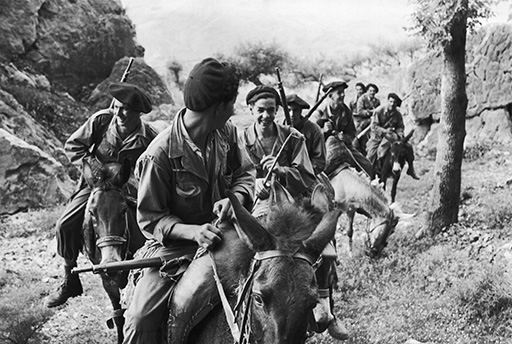Session 5: Algerian Harkis in France in the 1960s and 1970s
1 Introduction
This session was written by Lynn Berry
In July 1962, after almost eight years of bitter war, Algeria officially became independent from the French empire. The conflict had pitched France and its supporters from settler and pro-French Indigenous communities, against the majority of Indigenous Algerians, who demanded self-determination after more than 130 years of French control. It was a complex and costly armed struggle with stunning brutality shown on both sides. It ended by the decision of two referenda in 1962, one in France on 8 April and one in Algeria on 1 July, in which the war-weary majority polled in both countries endorsed Algerian independence.
Formal decolonisation is a long and complex chain of events by which colonies became sovereign nations; you saw a good example of this earlier in the course, when the French fought to preserve their control of Haiti. Decolonisation remained a difficult process through the mid-twentieth century. The British empire had surrendered most of its colonies by 1960. France lost French Indochina in 1954, relinquished Tunisia and Morocco in 1956, and Algeria in 1962. Such losses often led to the ‘repatriation’ of French colonists who did not wish to remain in these newly independent nation-states. Some Indigenous peoples who had supported imperial rule also sought refuge in France, after threats by Indigenous nationalists from their homeland, who denounced them as collaborators.
This type of migration from the colonies to France brought issues of racial discrimination into the lives of Asian and African immigrants who had been forced to move to an unwelcoming metropole. This session will consider the experience of the Harkis, Muslim Algerian auxiliaries to the French army, who were compelled to emigrate to France at the end of the Algerian War, and faced racial prejudice there despite their military service. This example demonstrates the complex ways that race, ethnicity and religion intersected to produce negative outcomes for a group of people who had been colonised. It is important to remember here that ‘Harki’ was a name given to a group of Algerian men who were auxiliaries in the French armed forces, and who were understood to be loyal to the empire. But this loyalty became irrelevant in the process of decolonisation, and you will see by the end of this session how racist attitudes negatively affected the lives of these men and their families.

